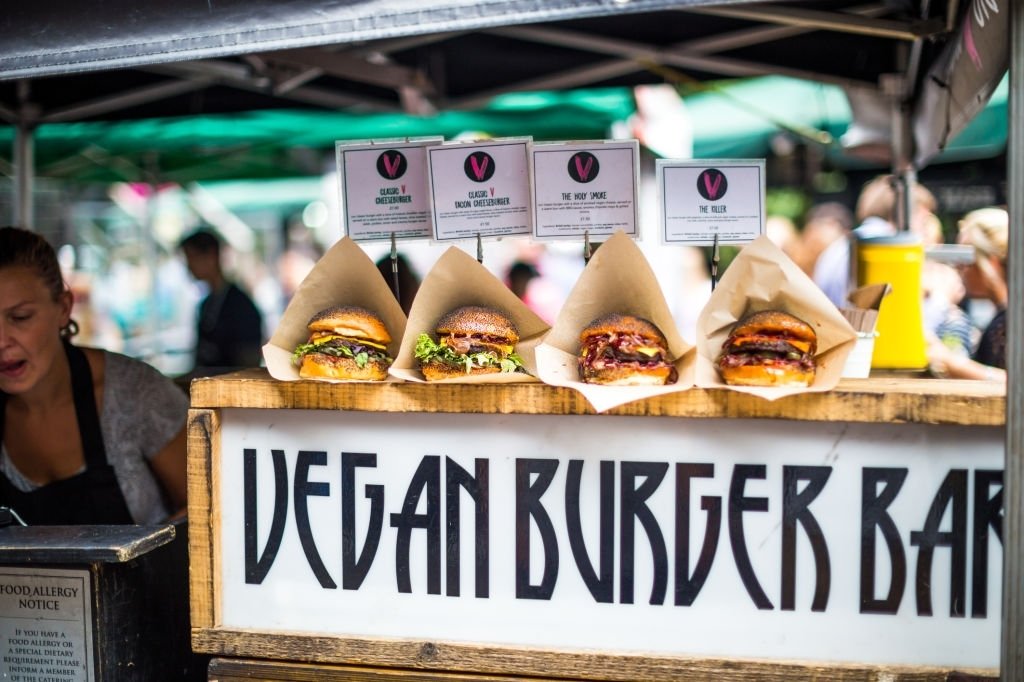Weight loss has become a significant goal for many people worldwide, and the vegan diet is gaining popularity as an effective way to achieve that objective. Not only is the vegan diet sustainable and environmentally friendly, but it also promotes health benefits such as reducing the risk of chronic diseases and improving digestion. In this article, we will discuss our top tips for losing weight with the vegan diet.
A vegan lifestyle is more than just about losing weight, but if you’ve landed here, that’s clearly what you’re interested in, so let’s have a look at weight loss on the vegan diet.
Top Tips For Losing Weight On A Vegan Diet
Ensure a balanced diet
Embarking on your weight loss journey means focusing on creating a balanced vegan diet. Achieving this balance requires incorporating different types of plant-based foods into your meal plan—fruits, vegetables, legumes, whole grains—which ensures you receive all necessary nutrients.
Pay attention to portion sizes
A common mistake when starting a vegan diet is overeating due to consuming mostly low-calorie plant-based foods. It’s crucial to watch your portion sizes and ensure you eat enough without overindulging. Remember that even healthy food can impact your weight if consumed in excessive quantities.
“It’s not just about what you eat, but how much you eat.“
Combine your vegan diet with different diets or methods
For some individuals, trying different strategies like intermittent fasting or ketogenic diets becomes appealing to optimize their weight loss journey further.
- Intermittent fasting: Combine your vegan diet with intermittent fasting to enhance both weight loss and overall health by eating during specific periods while fasting during others.
- Ketogenic diet: A vegan keto diet involves high healthy fat intake and low carb consumption, which helps you feel full while still promoting weight loss.
Boost your physical activity
Optimal weight loss involves a combination of diet adjustment and regular exercise. Engaging in activities such as walking, running, swimming, or joining group fitness classes improves your overall health and maximizes the results of your dietary improvements.
Include protein-rich foods in your meals
Protein is vital for both muscle growth and repair, while also enhancing satiety, making it a key element when losing weight with a vegan diet. Some excellent plant-based protein sources to consider are seitan, tofu, and tempeh.
Focus on fiber intake
Fiber is an essential component of weight management due to appetite regulation and improved digestion. It can be found in whole grains, fruits, vegetables, nuts, seeds & legumes.
Stay consistent and set realistic goals
Weight loss doesn’t happen overnight; it’s an ongoing journey that requires consistency and dedication to achieve the desired results.
Set attainable goals for yourself and develop a plan that allows you to adopt healthy habits over time.
Conclusion: Losing Weight With The Vegan Diet
In conclusion, losing weight with a vegan diet is achievable by implementing these tips alongside perseverance and determination for success. By maintaining a balanced diet, prioritizing healthy food choices rich in nutrients like protein and fiber —and combining different methods— you will be on your way toward reaching your ultimate goal: a healthier version of yourself through sustainable and compassionate lifestyle choices.
Happy Weight Loss Journey!


